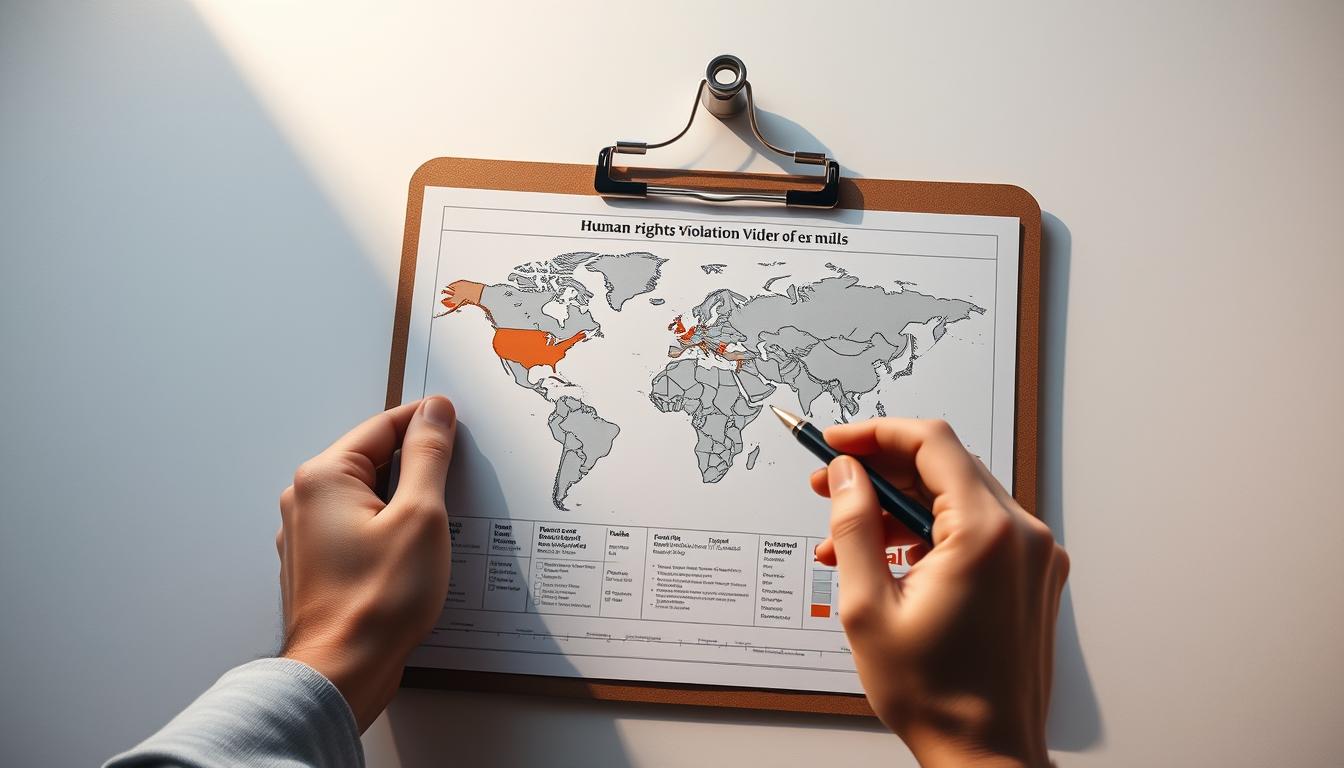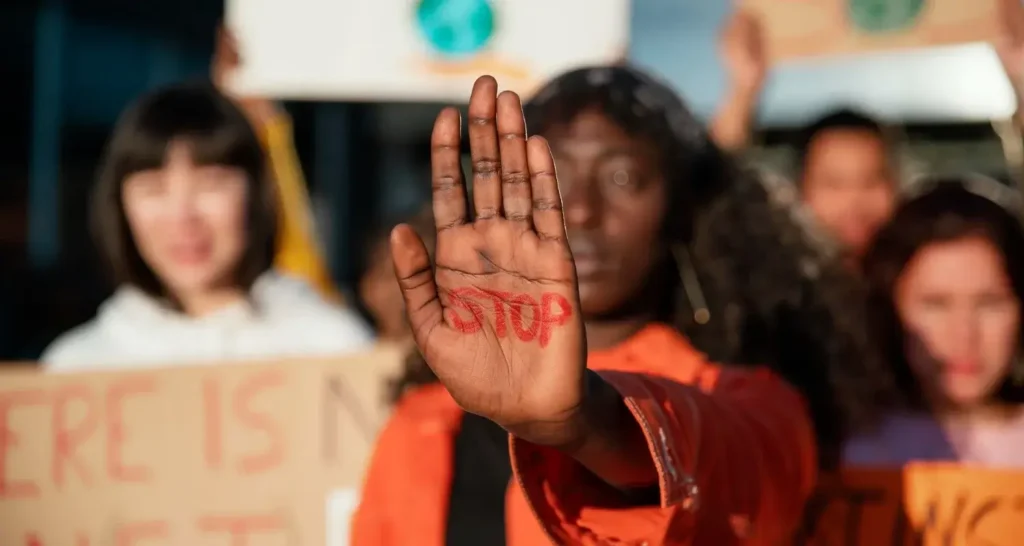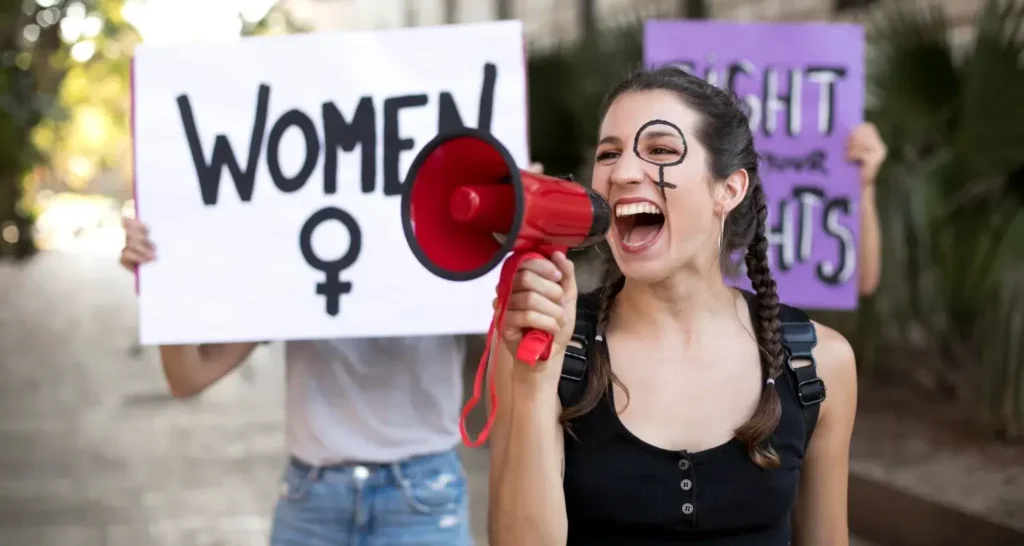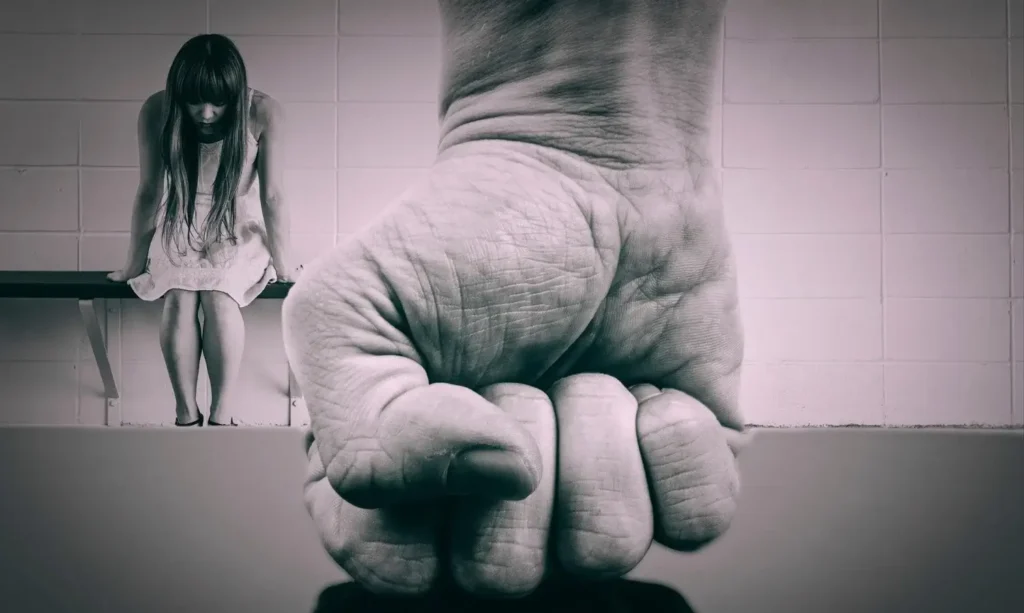Standing up against injustice is not just a choice. It’s a fundamental responsibility we all share. When you witness a human rights violation, your voice can be a powerful catalyst for change. Reporting these violations is not just about documenting an incident. It’s about protecting human dignity and preventing future abuses.
Understanding how to report a human rights violation can seem overwhelming. But every step you take matters. Whether you’ve personally experienced discrimination, witnessed systemic oppression, or learned about a violation, your report can trigger critical investigations and support for those most vulnerable.
This guide will walk you through the essential steps to effectively report human rights violations. By arming yourself with knowledge and courage, you can help create meaningful accountability and drive social transformation.
Key Takeaways
- Reporting human rights violations is key to protecting individual and collective rights
- Accurate documentation is vital for a successful complaint
- Multiple reporting channels exist for different types of violations
- Personal safety should always be prioritized when reporting
- Professional support and legal resources are available for victims
Understanding Human Rights Violations and Their Impact
Human rights violations are serious offenses against basic human dignity and freedom. It’s important to understand these violations to prevent and address abuse in different settings.
Common Types of Human Rights Violations
When you create a report on human rights violations, you’ll see several key types of abuse:
- Physical abuse and torture
- Discrimination based on race, gender, or religion
- Arbitrary detention or imprisonment
- Denial of basic economic and social rights
- Workplace harassment and exploitation
Recognizing Violations in Different Contexts
Human rights abuse happens in many places, like government offices and private companies. You’ll see workplace discrimination, political oppression, and social marginalization. These need to be documented carefully.
Immediate and Long-term Effects on Victims
The effects of human rights violations last long after the event. Victims often face:
- Psychological trauma
- Loss of personal and professional opportunities
- Social stigmatization
- Potential long-term health complications
Reporting human rights abuse is key to stopping violence and helping survivors. It’s about providing legal and social support.
Documenting Evidence of Human Rights Abuse
When you report human rights abuse, having solid evidence is key. Good documentation can turn a dismissed report into a successful investigation. It’s all about proving the violation.
Your goal is to create a detailed and believable record. First, make sure your safety is secure. Then, keep your documents intact.
- Collect physical evidence such as photographs and video recordings
- Gather detailed written statements from witnesses
- Maintain a chronological record of events
- Preserve original documents and communications
Here are some important tips for capturing evidence:
- Use high-resolution images and clear video recordings
- Include timestamps and geographic details
- Protect the privacy and safety of victims and witnesses
- Keep original copies of all documentation
| Evidence Type | Best Practices | Recommended Format |
|---|---|---|
| Photographic Evidence | Clear, date-stamped images | JPEG or RAW files |
| Video Recordings | Uninterrupted, high-quality footage | MP4 with metadata |
| Witness Statements | Detailed, signed accounts | Signed written documents |
Keeping your digital evidence safe is critical. Use encrypted messages and secure storage for your files. This will protect your sensitive information.
Key Organizations That Handle Human Rights Complaints
Knowing where to go when you have a human rights complaint is key. Different groups offer support and ways to report rights issues.
The world of human rights protection is complex. Many organizations work together to protect our rights. From global groups to local ones, each plays a vital role.
International Human Rights Bodies
Global bodies offer a place to report human rights issues worldwide. Some important ones are:
- United Nations Human Rights Council
- International Criminal Court
- Amnesty International
- Human Rights Watch
National Human Rights Institutions
In the United States, there are national groups to help with human rights complaints. These include:
- U.S. Commission on Civil Rights
- Department of Justice Civil Rights Division
- Equal Employment Opportunity Commission
Local Advocacy Groups and NGOs
Local groups offer quick and personal help when you need to report rights issues. They know the local scene well and can help a lot.
- State-level civil rights organizations
- Community legal aid centers
- Local human rights advocacy groups
Every group has its own way of handling complaints. Make sure to check their rules before you submit your case. Choosing the right place to report can really help your case.
Steps to Report a Human Rights Violation

Deciding to report a human rights violation can be tough. Knowing the right steps helps make it easier. It also increases your chances of getting help.
To report a violation, follow a clear plan:
- Gather Detailed Documentation
- Collect written accounts
- Save physical evidence
- Note dates, times, and details
- Find the Right Place to Report
- Local human rights groups
- National commissions
- International advocacy groups
- Write Your Formal Complaint
- Write a clear, short story
- Add supporting evidence
- Stay objective in your story
When reporting a violation, keep your safety and privacy in mind. Get help from legal experts or trusted human rights groups to help you.
“Every voice matters in the fight for human rights” – United Nations Human Rights Office
Before you submit your report, check your documents. Make sure they are correct, organized, and show the violation clearly. Your bravery can lead to real change and help others too.
Legal Requirements for Filing a Human Rights Complaint
Filing a human rights complaint is complex. Knowing the rules can help you succeed. It makes reporting violations more effective.
Critical Time Limitations
Timing is key when filing a complaint. Each place has its own time limits:
- Federal complaints have 180 days from the incident
- State complaints range from 180-300 days
- Some cases have longer reporting times
Essential Documentation Requirements
Good documentation is vital for reporting violations. You’ll need:
- A detailed account of what happened
- Supporting evidence like:
- Witness statements
- Photographs
- Medical reports
- Communication records
- Your personal ID
Jurisdiction Considerations
Where you can file depends on the violation’s location and type. Important factors include:
- The incident’s location
- The type of violation
- The laws that apply
- The bodies involved
Talking to a human rights lawyer can guide you. They help with the complex rules and filing your complaint right.
Protection Measures for Whistleblowers and Victims

When you decide to report human rights infringement, understanding your protection is key. Whistleblowers are vital in exposing serious violations but face big risks. The legal system has many strategies to protect those who bravely speak out.
Key protection measures for individuals reporting human rights violations include:
- Legal shield against workplace retaliation
- Confidentiality guarantees
- Potential relocation assistance
- Personal safety monitoring
There are different protection mechanisms based on your report’s context. Government agencies and international organizations offer special support services. These are designed to keep whistleblowers safe from threats.
| Protection Type | Coverage | Support Level |
|---|---|---|
| Legal Protection | Employment Rights | High |
| Personal Safety | Physical Security | Medium |
| Psychological Support | Counseling Services | Medium |
Remember, your safety is most important when exposing human rights violations. Get advice from legal experts in human rights protection. They can help you deal with challenges.
“Courage is not the absence of fear, but the triumph over it.” – Nelson Mandela
Professional organizations like the United Nations High Commissioner for Human Rights and local advocacy groups offer a lot of help. They provide resources and support for those reporting sensitive human rights issues.
Online Platforms and Resources for Reporting Violations
The internet has changed how we report human rights violations. Now, technology gives victims and witnesses tools to share important info safely.
Thanks to digital platforms, reporting human rights abuses is easier. These platforms protect your privacy and help victims.
Digital Reporting Tools
Many digital tools now help you report human rights issues safely:
- Human Rights Watch Digital Submission Portal
- UN Online Complaint Mechanism
- Amnesty International Reporting Platform
- Electronic witness documentation systems
Secure Communication Channels
When you report a violation, use safe ways to share your info:
- Encrypted messaging applications
- Anonymous reporting websites
- Secure cloud document storage
- Virtual private networks (VPNs)
Online Support Networks
Online groups offer help and support for those reporting human rights abuses. They provide advice, legal help, and emotional support through:
- Online counseling services
- Virtual support groups
- Professional advocacy forums
- International rights protection networks
Using these online tools, you can safely report human rights abuses. This way, you protect yourself and your information.
Working with Human Rights Lawyers and Advocates
Choosing to file a human rights complaint can be a big step. Working with a skilled human rights lawyer can make a big difference. They know a lot about human rights law and can guide you through the process.
Finding the right lawyer is important. Look for someone who knows a lot about human rights and has won cases before. Your lawyer should have:
- Extensive experience in human rights litigation
- Deep understanding of international human rights frameworks
- Strong communication and negotiation skills
- Proven track record of supporting victims
When you report human rights abuse, your lawyer will help you:
- Gather and organize all the evidence you have
- Prepare documents that will make a strong case
- Help you understand and follow legal steps
- Speak up for you in court or other legal settings
Pro tip: Many human rights organizations offer free initial consultations. They can help you understand your legal options and how to move forward.
At your first meeting, be ready to share all the details about the violation. This includes when and where it happened and any documents you have. Your lawyer will then tell you how strong your case is and what steps to take next.
Following Up After Filing Your Report
After you file a human rights violation report, your work is just starting. It’s important to keep track of your case. This ensures your report gets the attention it deserves.
Knowing how to follow up on a human rights violation report is key. It helps you overcome obstacles and keep pushing for justice.
Tracking Your Case Status
To stay updated on your report, you need to be proactive. Here are some ways to keep track:
- Contact the agency handling your case often by email or phone
- Ask for written updates on the investigation
- Keep a record of all your communications
- Use online tracking systems if they’re available
“Persistence is key in human rights reporting. Your continued engagement can make a significant difference.” – Human Rights Advocate
Additional Steps if Initial Report is Dismissed
If your report is dismissed, don’t give up. There are many steps you can take:
- Ask for a clear reason for the dismissal
- Get legal advice on possible appeals
- Reach out to other reporting channels or higher authorities
- Seek help from local human rights groups
Even if your report is dismissed, it’s not the end. There are many resources and support groups ready to help you fight for justice.
Common Challenges in Human Rights Violation Reporting
Reporting human rights violations can be very tough. It’s emotionally draining and complex. People often face big hurdles when trying to report these crimes. It’s key to know these challenges to fight for justice.
The main hurdles in reporting human rights violations are:
- Fear of personal safety and possible revenge
- Hard to find legal help
- Many barriers in complaint systems
- Hard to deal with the emotional pain of sharing your story
- Not enough support from institutions
Emotional stress is a big part of reporting human rights violations. Victims might feel scared, anxious, and unsure about speaking out. The emotional toll of sharing their trauma can stop them from seeking justice.
There are also practical barriers. Navigating complex legal systems and collecting solid evidence takes a lot of time, knowledge, and resources. Many people don’t have the right support or know how to use formal complaint systems.
“Persistence and courage are key to overcoming reporting challenges” – Human Rights Watch
To report human rights violations well, you need to:
- Collect detailed evidence
- Get help from advocacy groups
- Know your legal rights
- Use safe reporting channels
- Put your safety first
Even with these challenges, it’s vital to report human rights violations. Your voice can help change society and fight against injustice.
Conclusion
Reporting a human rights violation is more than a legal step. It’s a powerful way to show social responsibility. When you report a violation, you help protect human dignity and justice.
Knowing how to report human rights violations gives people the power to fight against abuse. Every report helps bring accountability to light. It uncovers hidden patterns of discrimination and violence.
Your voice is important. By sharing your story, you support victims and challenge wrongdoings. This guide offers tools and resources to help you take action and seek justice.
Remember, speaking up takes courage. Whether you’re affected directly or see injustice, your efforts can lead to big changes. Stay informed, keep pushing, and believe in the power of people working together.
FAQ
What qualifies as a human rights violation?
A human rights violation happens when someone’s basic rights are ignored. This includes things like discrimination, torture, and unfair detention. It also includes denying freedom, privacy, and workplace fairness. These actions can hurt a person’s dignity and happen at many levels.
How do I know if I should report a human rights violation?
You should report a violation if you see or experience harm or unfair treatment. This includes actions that:
• Harm or unfairly treat someone
• Break basic human rights laws
• Use power unfairly
• Put someone’s safety or dignity at risk
• Cause physical, mental, or emotional harm
What evidence should I collect before reporting a violation?
Collect all the evidence you can. This includes:
• Written accounts of what happened
• Photos or videos
• Statements from witnesses
• Official documents
• Medical records
• Records of communication
• Details like dates, times, and places
Where can I report a human rights violation?
You can report violations in many ways. Try:
• The United Nations Human Rights Council
• National human rights groups
• Local advocacy groups and NGOs
• Government agencies
• Online platforms
• Legal aid organizations
• Human rights commissions
Is my identity protected when reporting a violation?
Many places promise to keep your identity safe. You can:
• Ask to remain anonymous
• Use secure ways to communicate
• Get legal advice for more protection
• Use whistleblower laws
• Choose places that promise to keep your info private
What happens after I file a human rights violation report?
After you report, things usually happen like this:
• Your complaint is reviewed
• Authorities start an investigation
• They might ask for more evidence
• There could be legal actions
• You might get updates or resolutions
Are there time limitations for reporting human rights violations?
Time limits vary based on the violation and where it happened. It’s best to report quickly. This helps keep evidence safe and increases the chance of action.
Can I report a human rights violation if it happened in another country?
Yes, you can report violations from other countries. Try:
• The United Nations
• The International Criminal Court
• International human rights groups
• Diplomatic channels
• Specialized advocacy groups
• Human rights tribunals
What support is available for victims reporting violations?
Victims get many kinds of support. This includes:
• Legal advice
• Psychological help
• Programs to protect victims
• Help from advocates
• Resources for rehabilitation
• Guidance on compensation
• Support networks for emotional and practical help
What if my initial report is dismissed?
If your report is dismissed, don’t give up. You can:
• Ask for a clear explanation
• Appeal the decision
• Try other reporting channels
• Talk to human rights lawyers
• Contact different organizations
• Gather more evidence
• Keep trying to report










